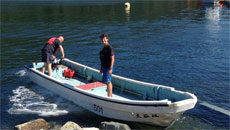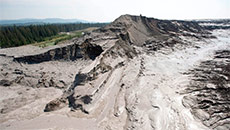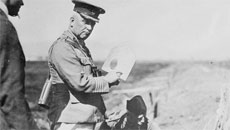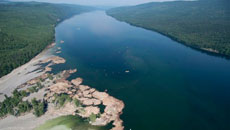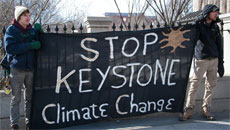VANCOUVER - Overlapping land claims are a major issue facing British Columbia First Nations as they try to move forward following a landmark land-title ruling, say aboriginal leaders.
Hundreds of chiefs, lawyers and representatives of every aboriginal community in the province gathered at a two-day meeting in Richmond, B.C., trying to reach a consensus on how to proceed in the wake of the June decision by the country's highest court.
The unresolved territorial disputes are an issue, said Cheryl Casimer, of the First Nations Summit.
"If we don't work amongst ourselves to resolve that outstanding issue, we certainly know the province will definitely take full advantage of that," Casimer said in an interview Friday.
"For far too long the way that the province deals with First Nations in situations where there are disputes, it's always a process of divide and conquer. We're not interested in that any more."
B.C. chiefs will meet Sept. 11 with Premier Christy Clark and her cabinet. It will be the first meeting to discuss the decision by the Supreme Court of Canada.
The Tsilhqot'in nations won a decades-long court case that recognized — for the first time in Canadian history — their aboriginal title over 1,750 square kilometres of territory west of Williams Lake.
Title is akin to private ownership rights, and places a greater burden on First Nations' consent to economic development on aboriginal land.
However, the court said development can go ahead on titled land without consent in cases where it is pressing, substantial and meets the Crown's fiduciary duty.
It's an historic decision that could, potentially, bring resource development in B.C. to a standstill, Casimer said.
"So it's in the province's best interest to sit down and have a conversation with us on how we work together and how we move forward together," she said.
As for dealings with the federal government over the new ruling, she said the First Nations Leadership Council, which includes the summit, the B.C. Assembly of First Nations and the Union of B.C. Indian Chiefs, hasn't heard a word from Ottawa aside from a press release sent to media the day of the decision.
Suggestions up for discussion at the meeting included putting an end to all treaty negotiations until the repercussions of the decision are established.
Delegates at the meeting also discussed whether the ruling overrides existing treaties and benefits agreements.
And it was suggested that B.C. aboriginal communities would wield greater power should they amalgamate under the federal Indian Act to create a single political entity, with dozens of regional councils.
Aboriginal leaders must also address the 75 per cent of their citizens who do not live on reserves, delegates were told.
Grand Chief Stewart Phillip of the union, said reaching a consensus is a "work in progress."
"It's not lost on anyone that unity is a fundamental element of achieving success in any political or legal strategy," Phillip said in an interview.
"I think we can look forward to that happening to a greater extent than it has in the past."
